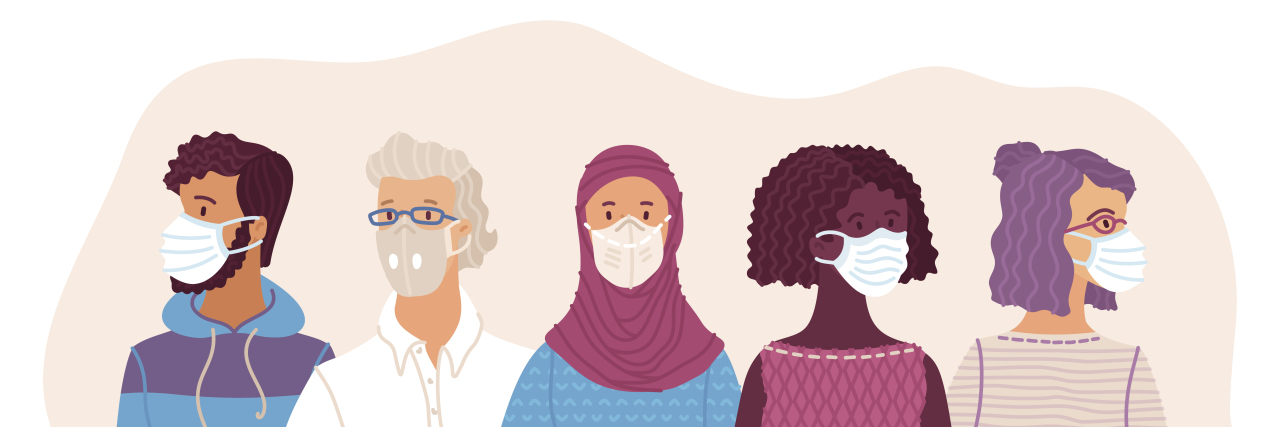The Mighty Survey: Coronavirus Emotions Shift From Fear to Distrust
Editor's Note
Join The Mighty’s Coronavirus group to connect with other Mighties living through the pandemic. Read the latest updates, share helpful tips, or give and receive virtual support.
Distrust and frustration — especially among essential workers — are overtaking worry, fear and panic as the coronavirus (COVID-19) continues to upend all aspects of life in America.
For the sixth consecutive week, The Mighty checked in with its audience, the largest healthcare community in the world, to measure the mood. We ran a survey from April 13 to April 15, hearing from thousands of Mighty members.
The level of concern over the pandemic definitely remains high, but confusing messages and policies from political and medical leaders and are now front and center in our national psyche. Twenty-nine percent of respondents cited distrust as one of their top three emotions, up from 20% at the end of March. Sixty-two percent cited frustration as their top emotion. Meanwhile, fear fell from 50% to 39% since the end of March as a top ranked emotion
Social distancing remains a hot button issue:
- 38% say social distancing policies can be confusing or hard to understand
- 34% think policies are not strict enough while 4% think they are too strict
- 28% of people ranked social distancing policies not being followed as a top concern, making it the second most concern overall (after worry that a loved one with a preexisting condition would get the disease)
Two members told us:
“My biggest concern is that my immune system is compromised. No matter how much self-isolation I do, I watch those in my community who ignore social distancing and mask recommendations and know that my odds of getting sick increase exponentially in direct response to the stupidity and inconsiderate behavior of others.”
“People come in and say they are thankful we are open so they can come ‘hang out and get out of the house.’ They are supposed to be coming out and getting what they need and leaving, and most people simply do not do that.”
Nearly one-quarter of our survey’s respondents can be categorized as essential workers, and over 87% of them work in healthcare, municipal, or food service positions. The disruption in their lives is acute:
- 78% overall say they experienced changes to their mental or emotional health (e.g., stress, anxiety, depression)
- 68% overall said they have experienced frustration or anger with those not practicing social distancing or following safety precautions
- 60% overall said they have increased fatigue or exhaustion
Here’s how two essential workers reacted:
“Working in a hospital where we do have patients with the virus has been extremely stressful, especially because now I’m sick and we’re pretty certain that I have it too, but I‘m ‘not sick enough’ to be tested which is extremely frustrating.”
“Even though I am classified as an essential worker, I have opted to stay home. I fear later backlash from my company…they have not once publicly supported those of us who [haved] opted out of work and today the company is in the news for unsafe practices in their warehouses.”
The coronavirus is unique in that it impacts all of us, whether we’re at risk or not. We will continue to survey our members over the next weeks and months to measure their mood, needs and the broad ramifications of this deadly virus.
Related: Finding Parallels Between the Crisis Phase in Fighting Cancer and COVID-19
For more information from The Mighty, check out our coronavirus topic page, where you can find new stories and daily thoughts and comments from our members.
Methodology
- 10-minute survey around awareness, perceptions, and experience with the coronavirus (COVID-19)
- Total of 2,177 global respondents
- Fielded from April 13, 2020 – April 15, 2020
Need resources? Here are related articles about the coronavirus (COVID-19):
- How to Get Through COVID-19 Quarantine With Your Partner
- Resources for Financial Assistance During COVID-19
- How Do Doctors Know When a COVID-19 Patient Is Recovered?
- 5 Reasons the COVID-19 Outbreak Has You Feeling Like You’re on an Emotional Rollercoaster
- Does Health Insurance Cover Telemedicine During the COVID-19 Pandemic?
- How Can You Tell the Difference Between Anxiety and COVID-19 Symptoms?
Read more stories about coronavirus on The Mighty:
- 15 Disability-Owned Businesses to Support During COVID-19
- The Problem With Amazon Blocking Sales of Certain Medical Supplies
- As a Mom With Depression, the COVID-19 Pandemic Was the Wake-Up Call I Needed
What Is COVID-19?
COVID-19 (SARS-CoV-2) is a new-in-humans coronavirus that causes respiratory infection. The virus’s most common symptoms include fever, cough and shortness of breath, and in severe cases, difficulty breathing and pneumonia. Other symptoms may include a loss of smell and taste or digestive issues. The coronavirus is highly contagious and is believed to spread to at least two people for every one person infected. Because it can take days for symptoms to appear, people can spread COVID-19 before they know they’re contagious.
Getty image by Maljuk.

